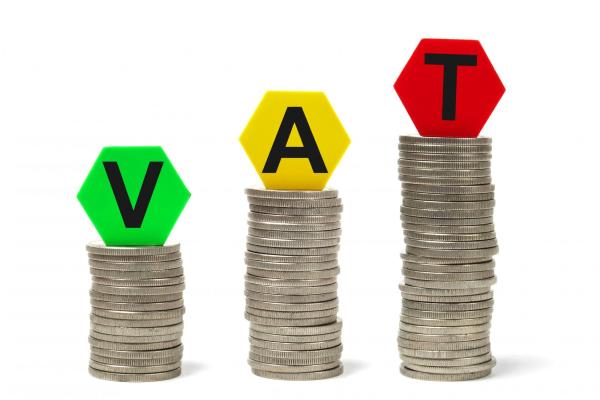
Press Release: Hold back on fresh look at VAT threshold
The Association of Taxation Technicians (ATT) is warning that any significant reduction in the VAT registration threshold could increase costs and burdens for small businesses and impose digital record keeping requirements on them earlier than expected.
The Office of Tax Simplification (OTS) recently published their report Value added tax: routes to simplification.1 This sets out a range of options for simplifying VAT from both a technical and administrative perspective.
One of the main focuses of the OTS in their report is the level of turnover above which a business is required to register for and charge VAT (the VAT threshold). The VAT threshold is currently £85,000, the highest in the EU.
The OTS believe that the current level of the VAT threshold and its cliff edge nature distort taxpayer behaviour. The relatively high level means that many small businesses can earn sufficient income to support themselves without going over the VAT threshold. In order to avoid the costs and administrative burdens of becoming VAT registered, they may therefore choose to keep their turnover below the threshold, either by legitimately limiting their expansion or illegally under-recording their takings.
One of the main recommendations of the OTS is that the Government should examine the current approach to the level and design of the VAT registration threshold in order to address this distortion.
One of the options they set out to achieve this would be to significantly lower the VAT threshold. The OTS suggest that this would reduce the unregistered business population and competitive distortions, and make it harder for businesses seeking to evade VAT to remain undiscovered.
Yvette Nunn, Co-chair of ATT’s Technical Steering Group, said:
“The ATT fully supports the commitment of the OTS to simplify the VAT system but we cannot see that increasing the number of businesses that have to register for and charge VAT involves any simplification.
“We are concerned that any significant reduction in the VAT threshold would result in unwelcome costs and burdens for small businesses – as well as increasing the tax burden on households in the form of additional VAT.
“The OTS report indicates that, as an example, reducing the VAT threshold from £85,000 to £43,000 would impact between 400,000 and 600,000 businesses.
“That would mean 400,000 – 600,000 small businesses facing the additional administrative requirements and costs associated with VAT registration and, where they sell to the public, the choice between putting up prices by 20% or absorbing some or all of the VAT charge themselves.2
“To date the VAT threshold has typically been increased year on year in line with inflation. This has been a rising limit for the very reason of ensuring the smallest businesses are neither over-burdened nor incur excessive costs.
“In addition, from 1 April 2019 all businesses with turnover above the VAT threshold will have to keep digital records under the Making Tax Digital (MTD) reforms.3 Any reduction in the VAT threshold would draw small businesses into MTD record keeping obligations earlier than they may have expected.
“In addition to the time needed to get to grips with the new MTD requirements, those businesses may face extra costs for adviser fees and software. HMRC already estimate the annual VAT compliance cost for a small business to be around £675 per year and that is without factoring in MTD obligations.
“The imminent introduction of MTD for VAT and the current uncertainty surrounding Brexit mean that we do not believe this is the appropriate time to increase compliance burdens and costs for small businesses in this way. Instead, we would recommend that the Government consider the alternative approaches suggested by the OTS, including the potential to smooth the impact of the registration threshold.”4
Notes for editors
1The OTS report to Parliament was published on 7 November 2017 and can be found on GOV.UK.
2 VAT registered businesses can often reclaim from HMRC the VAT which they incur on purchases, subject to specific restrictions. As a result, business selling to other businesses can often simply add VAT on top of the purchase price – their customers will generally only be interested in the VAT exclusive price as any VAT charged on top is not an absolute cost to their business.
By contrast, the general public cannot reclaim VAT on purchases. A business which becomes VAT registered and which is selling to the public therefore has to either:
- Increase their sales price to include the VAT, or
- Charge the same price, but cover the VAT from their profit margin.
This can put them at a competitive disadvantage compared to non-VAT registered businesses supplying the same goods or services.
3 Under Making Tax Digital (MTD) businesses will be required to keep digital records and make quarterly reports to HMRC.
MTD was originally to be introduced for income tax from 1 April 2018. However, on 13 July 2017 the Government announced that it would be delaying the introduction of MTD. Under the new timetable:
- Only businesses over the VAT threshold (currently £85,000) will have to keep digital records.
- Digital records will only be required initially for VAT purposes, and only from April 2019.
- Business will not have to keep digital records or report quarterly for other taxes (e.g. income tax and corporation tax) until April 2020 at the earliest.
More information on MTD can be found in our Making Tax Digital section.
4 The OTS report suggests that the cliff edge effect of the VAT registration threshold could be removed by, for example, businesses just above the threshold being allowed to retain a proportion of the VAT that would otherwise have to be paid to HMRC.















